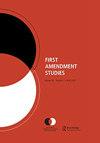Conceptualizing Academic Freedom After the Salaita Affair
Q2 Social Sciences
引用次数: 4
Abstract
What is the concept of academic freedom, what are the justifications for its existence, and to whom does it belong? These are important questions to ask in determining what, if any, special protections accrue for those performing academic work. Academic freedom is “the freedom to pursue the academic profession according to the standards of that profession” according to Robert Post and Matthew Finkin in their book The Common Good. The standards of the profession are developed, maintained, and policed by other disciplinary practitioners, who are best situated to evaluate the scholarly activities that conform to disciplinary criteria and merit academic freedom protections. The justification of this freedom for academics resides in the importance of the academic task for the betterment of society and the promotion of the common good. The uniqueness of the academic task, as this argument goes, requires special privileges; academic freedom is among them. That academic freedom is for academics goes without saying, of course, but what is its nature, its parameters, and what exactly does it guarantee and to whom? The little discussion of academic freedom within American case law seems to recognize it more as an institutional than individual right, as recent rulings on affirmative actions policies illustrate. In other words, the academic institution may decide who may teach, what will be taught and who will be admitted for study. This conception of academic freedom seems to place academic freedom in the hands of administrators instead of faculty. One may argue that academic freedom is as elusive as ever, with conceptions of it ranging from a professional guild privilege, to identifying it as an ingredient in producing societal revolution. How has a professional concept, seemingly reserved for academics, become so contested and ill-defined and misunderstood, even among academics themselves? In his Versions of Academic Freedom: From Professionalism to Revolution, Stanley Fish identifies five “schools of academic freedom,” which are meant to represent萨莱塔事件后学术自由的概念
什么是学术自由的概念,它存在的理由是什么,它属于谁?在确定对从事学术工作的人有什么特别保护时,这些都是需要问的重要问题。根据罗伯特·波斯特(Robert Post)和马修·芬金(Matthew Finkin)在《共同利益》(the Common Good)一书中的说法,学术自由是“根据该职业的标准从事学术职业的自由”。专业标准是由其他学科从业者制定、维护和监督的,他们最适合评估符合学科标准和值得学术自由保护的学术活动。学者享有这种自由的理由在于学术任务对于改善社会和促进共同利益的重要性。这种观点认为,学术任务的独特性需要特殊的特权;学术自由就是其中之一。当然,学术自由是学者的,这是不言而喻的,但它的本质是什么,它的参数是什么,它到底保证什么,向谁保证?美国判例法中关于学术自由的少量讨论似乎更多地将其视为一种制度权利,而非个人权利,正如最近有关平权行动政策的裁决所表明的那样。换句话说,学术机构可以决定谁可以教,教什么,谁可以被录取。这种学术自由的概念似乎将学术自由置于管理者而不是教师的手中。有人可能会争辩说,学术自由一如既往地难以捉摸,其概念从专业协会特权到将其视为产生社会革命的一个因素。一个看似为学术界保留的专业概念是如何变得如此有争议、定义不清和误解的,甚至在学术界内部也是如此?在《不同版本的学术自由:从专业主义到革命》一书中,斯坦利·费什(Stanley Fish)指出了五种“学术自由流派”
本文章由计算机程序翻译,如有差异,请以英文原文为准。
求助全文
约1分钟内获得全文
求助全文
来源期刊

First Amendment Studies
Social Sciences-Law
自引率
0.00%
发文量
0
期刊介绍:
First Amendment Studies publishes original scholarship on all aspects of free speech and embraces the full range of critical, historical, empirical, and descriptive methodologies. First Amendment Studies welcomes scholarship addressing areas including but not limited to: • doctrinal analysis of international and national free speech law and legislation • rhetorical analysis of cases and judicial rhetoric • theoretical and cultural issues related to free speech • the role of free speech in a wide variety of contexts (e.g., organizations, popular culture, traditional and new media).
 求助内容:
求助内容: 应助结果提醒方式:
应助结果提醒方式:


